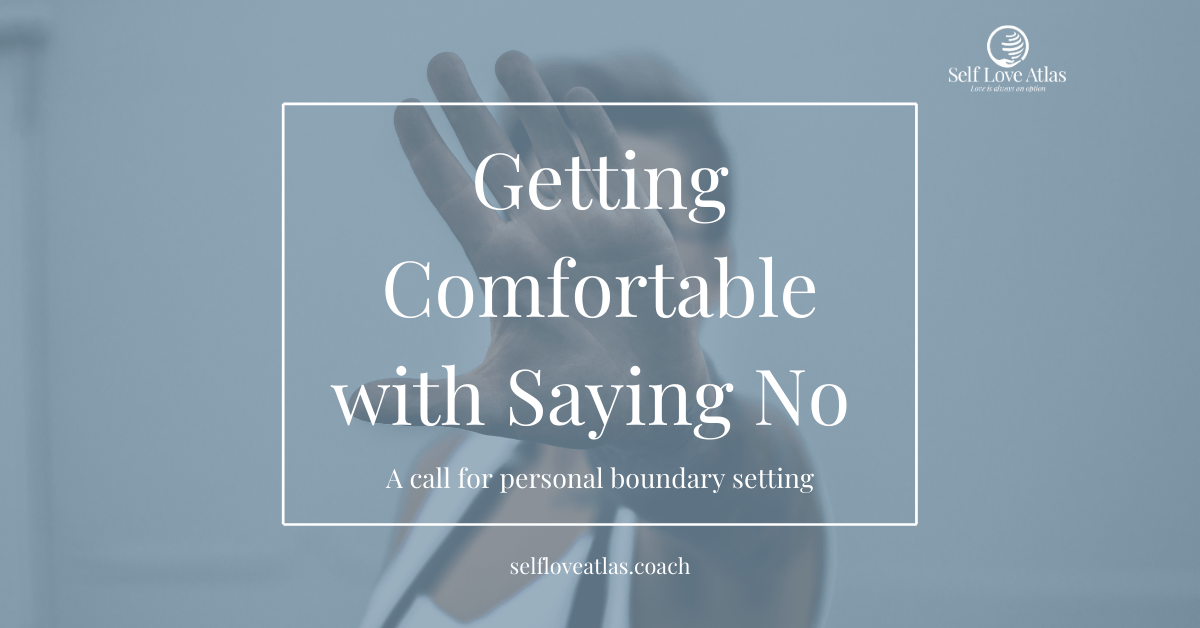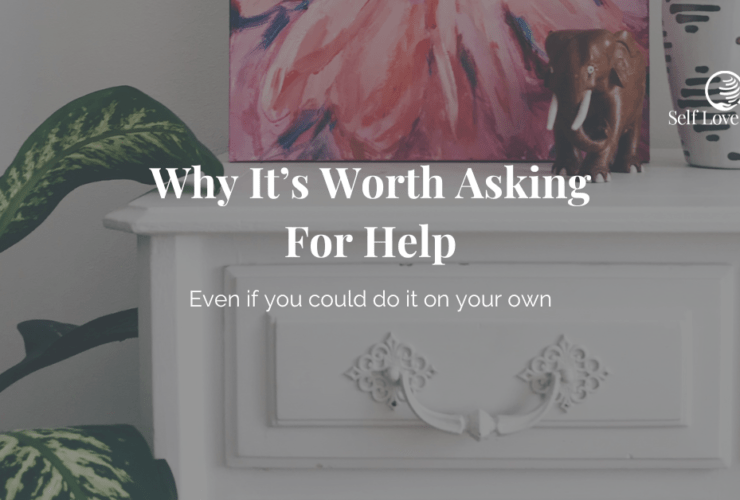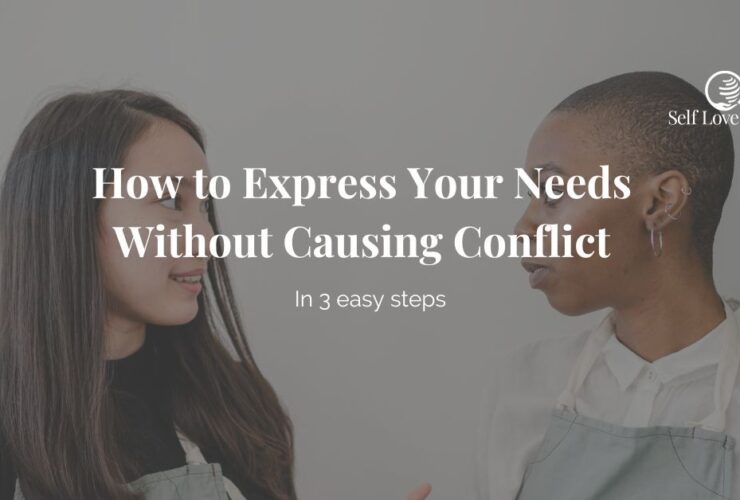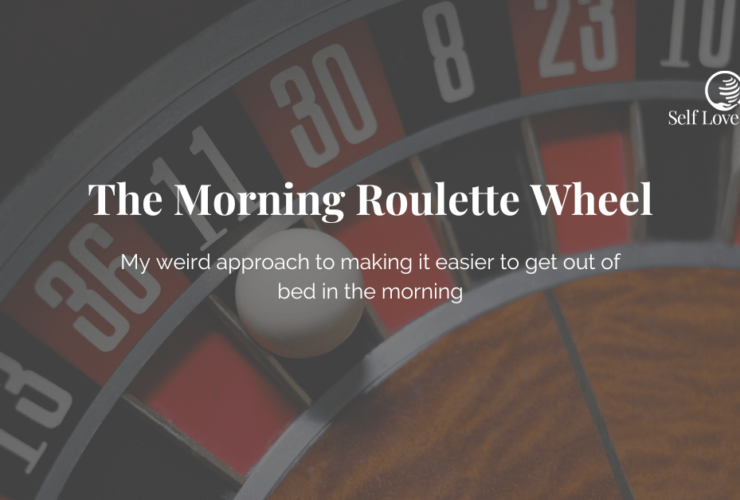Getting Comfortable with Saying No
Have you ever felt guilty for saying no? Or uncomfortable saying yes? Have you found yourself trying to please others at the cost of your own well-being? If you said yes to any of these, then you might benefit from getting comfortable with saying “no”.
Saying no is an essential step in achieving a balanced life. It can help you become more aligned with your true self, give you more control over your time and energy, and help you feel far more comfortable in daily life. But learning how to say no to tasks (and people!) can be difficult both socially and mentally. In this post, we’ll talk about why saying no can be so hard, and why we should do it anyways.
Saying No is about Setting Personal Boundaries
When I talk about “saying no” what I’m really talking about is a willingness to express when something doesn’t feel good or appealing to you. This could mean telling someone that you don’t want to have a drink, saying no to picking up that extra shift at work, telling someone you don’t want to talk on the phone every single day, or maybe letting someone know that you’re busy and they’ll have to solve their problem without you.
Saying no to others is NOT about denying other people things they want (i.e. your assistance or attention). It’s about setting personal boundaries for yourself based on your needs and preferences (which you have every right to do!).
Personal boundaries are defined as “guidelines, rules or limits that a person creates to identify reasonable, safe and permissible ways for other people to behave towards them and how they will respond when someone passes those limits.”
Without boundaries, many people find themselves catering to the unrealistic expectations of both their culture and of other people. They therefore find themselves taking on more “weight” (i.e. tasks and feeling responsible for other people’s emotions) than they can handle. Saying no is key to preventing this from happening, but…
People Feel Uncomfortable Saying No for a Variety of Reasons
They don’t want to…
- seem selfish
- disappoint others
- have other people to view them in a negative light
- seem like they don’t care
- cause conflict or tension in their relationships
But regardless of what considerations arise when choosing whether or not to say no, it is your right to say no, to anything, without being emotionally responsible for the person you’re saying it to. And this may sound weird, but you’re also never responsible for how other people feel about you.
You could do everything in your power to please someone and have them still be displeased and disappointed. Seriously, you could do everything. You could be the best version of yourself at every moment, and there would still be people who judge and feel negatively toward you.
That’s not your fault. And that’s not your problem. That’s theirs.

But if your desire to avoid “stirring the pot” prevents you from setting boundaries entirely, that’s a recipe for exhaustion and a losing battle of people pleasing.
Luckily, that is a problem within your control to solve.
The Reason We Have A Hard Time Saying No: My Best Guess
Recently, I stumbled on an article from the Washington Post about how parents might talk to their children about consent in non-sexual contexts. It was titled plainly, “It’s never too early to teach children about consent and boundaries.”
In the post, the author Anne Theriault says, “there’s a misconception that ideas about consent and bodily autonomy should be lumped in with sexual education, but that’s actually far too late. Healthy boundaries apply to so much more than just sex or partnership.”
When I heard this, I realized that most people don’t learn about the concept of consent (and by extension, our right to set healthy personal boundaries) at least until our teens.
If conversations about consent and boundary setting are mistakenly lumped with sex education, then many adults/parents/guardians might feel that those conversations are not appropriate or are “too mature” for young kids.
Which means most people were never encouraged to validate their own no’s. Never encouraged to set boundaries for themselves based on their own comfortability.

And if most children aren’t being taught of their right to give or revoke consent to small things (i.e. who can be in their personal space and for how long) at an early age, then it’s also unlikely that they’ve had their “no’s” validated when they say them.
When we’re little, there are few spaces where our yes’s and no’s are given priority over those of other people. At an early age, other people have a lot of control over how we spend our time, where we go, what we wear, what we eat, etc.
Then, as we get older, there are few conversations that say “Here, you’re in charge of yourself now!” “You get to choose!”
So here we are, adults, learning for the first time how to validate our own no’s and how not to feel guilty for expressing reasonable preferences for how we spend our time and energy, and who we spend them with.
This helps explain why it can be SO unbelievably difficult to validate our own “no’s” and use them as a tool to set boundaries in our lives.
Note: If you disagree, leave a comment and let’s talk about it! This is just my best guess.
You have a right to control your own life, to choose how you spend your time and who you spend it with, and if you don’t build up the courage to say no, then external influences will have more control over your life than you do.
In some cases, it may be near impossible to say no, especially if we’ve already said yes in some kind of contract. For example, an employer likely has some control over your time-with limitations of course-because you’ve entered into an employment agreement with them. But even then, that person should not and likely does not have complete control over your time, especially when you’re not on the clock.
Regardless of who or what is placing demands on your time, it is always worth considering setting and communicating clear boundaries so you can have better control of your day-to-day life.
The Only Person Who Needs to be Okay With Your “No” is You.
Each person has their own priorities that are independent of what any other person asks of us. And to respect those priorities, there will be times where we just need to say no.
Even if someone else will be upset about it.
Even if it affects your relationship with someone.
Even if they would prefer the answer was yes.
Your no is for you. And if you want to achieve life balance, your “no” is going to be a necessary part of that.
For me, I’ve had to start saying no to scheduling coaching sessions late in the evenings or on weekends. Because if I say yes, it depletes my energy and takes away from my quality time with people I love.
That’s something I’m not willing to sacrifice, so my “no” is required.
Likewise, you need to be willing to say no to protect and prioritize whatever is most important to you.
If someone is asking more from you than you can give, and you tell them no. Their discontent is on them. And when they remove themselves from your premises out of frustration, you are simply left with your space, your priorities, and your firm boundaries.
That sounds like a pretty good deal to me.
Finally, Ask for Support
It’s worth mentioning that saying no and setting boundaries can be additionally difficult and complicated if you or someone you know is struggling with mental illness, depression, anxiety, or trauma.
If you are struggling with setting your boundaries, or if someone is constantly pushing your limits after you’ve made them known, please never hesitate to reach out to a mental health professional or someone you trust.
In Conclusion,
Learning to “say no” and set boundaries really is one of the biggest steps you can take towards having a well-balanced life. It’s a skill that is well worth practicing, because every bit of progress you make in this will help you respect yourself and others, as well as give you the command over your life you’ll need to make it into something you really love.
What are some things you’d like to “say no” to in your life? What are some challenges you face when trying to assert your personal boundaries?
Did this post resonate with you? If so, I’d love to hear from you! Leave a comment or send me a message to share your thoughts. For more uplifting content, check out some other posts on my blog, follow me on instagram @morgan_barbret, or sign up for the Self Love Atlas Newsletter!
Cheers,
Morgan Rita Barbret





